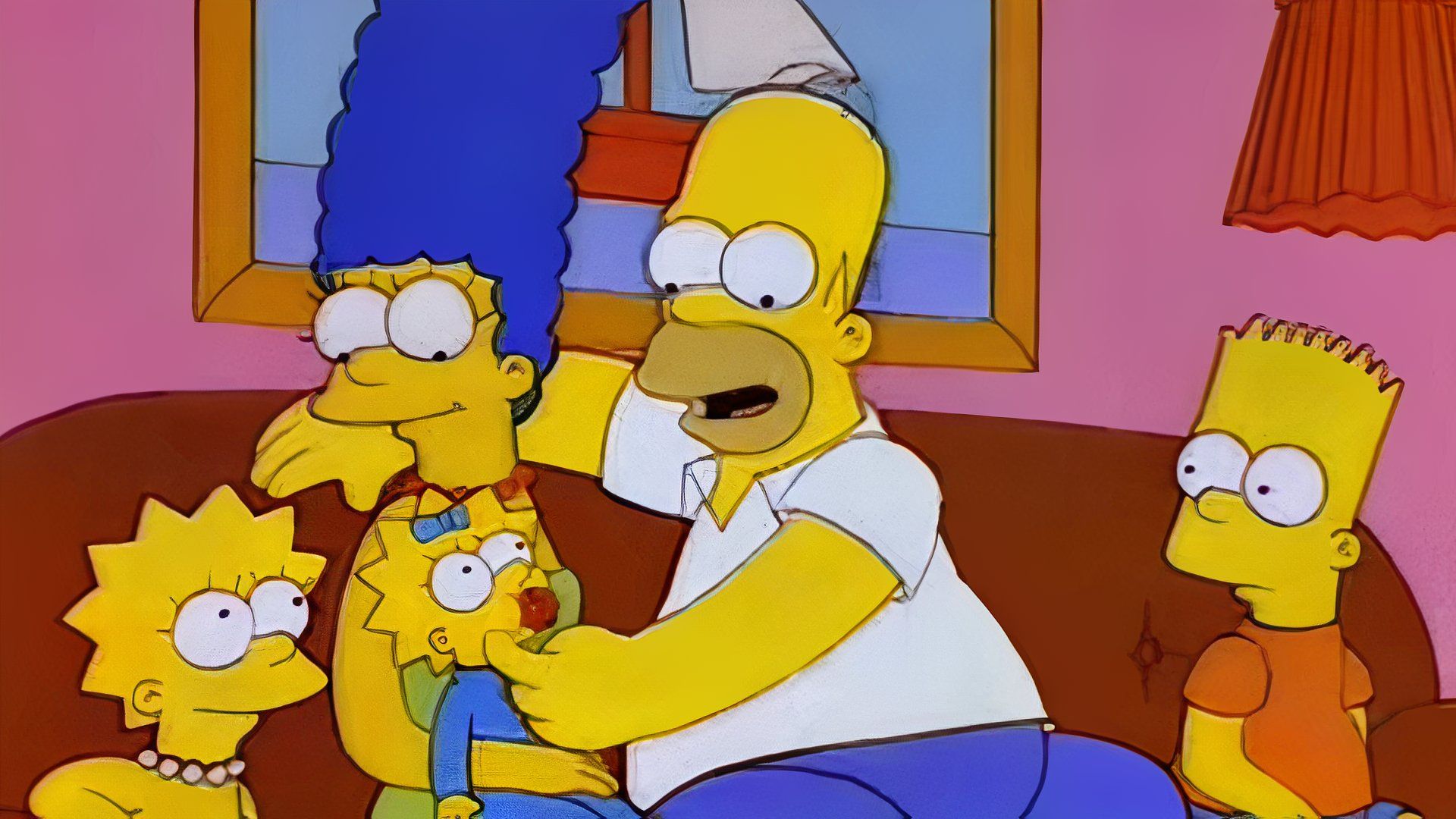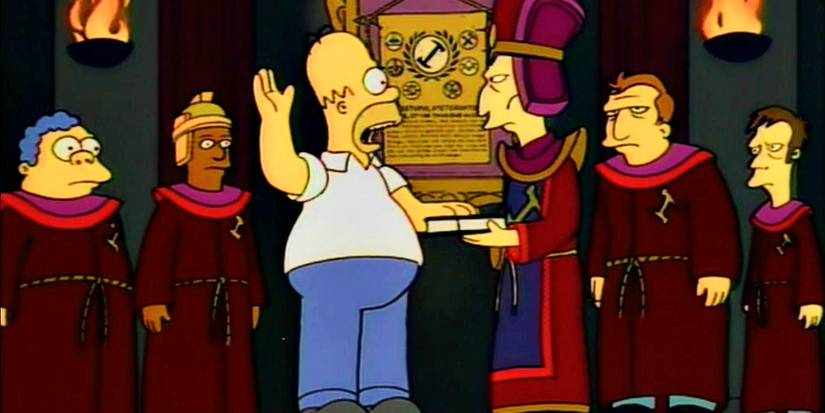
Re-watching The Simpsons season 6, episode 13, I was struck by how much sadder the story feels after all these years. The Simpsons is a television landmark – as of November 2025, it’s the longest-running scripted primetime show in American history, with nearly 800 episodes under its belt.
It’s no surprise that some early episodes of The Simpsons haven’t held up well over time. Beyond instances where the show disappointed fans, many older episodes just feel dated because of how culture and humor have changed. What was once considered daring now seems mild, and jokes that were once subtle now feel obvious.
However, that wasn’t the main reason I had trouble rewatching one of my all-time favorite episodes. “And Maggie Makes Three,” which originally aired in January 1995 as part of Season 6, was very popular when it first came out. The episode reveals why there are no photos of Maggie in the family albums.
A simple question triggers a long flashback, forming the bulk of this memorable episode. Homer remembers when he dramatically quit his job at the power plant to pursue his dream of working at a bowling alley. Despite his humble goals, it was incredibly satisfying to watch the show’s relatable main character finally stand up to his boss.
The Simpsons Season 6 Episode 13 Is Way Sadder Than I Remembered

Those familiar with the classic “And Maggie Makes Three” finale will recall the story doesn’t truly end with debt cleared and Homer quitting his job. A romantic night follows, and Marge soon discovers she’s pregnant with Maggie. This means Homer needs to find a better source of income than just bowling.
Although the death of a character in The Simpsons season 37 felt like a simple joke, this storyline demonstrates the show’s ability to create genuinely moving moments when it focuses on the quiet sadness of everyday life. Homer nearly leaves the power plant for a better life, but ultimately returns to be there for Maggie, and the scene is surprisingly heartbreaking.
What makes this moment so memorable isn’t a big event, but how small and relatable Homer’s disappointment is. Unlike dramatic plot twists, his fate feels natural and predictable. We already know from the start of the episode that he works at the power plant, not as a bowler, so his failed dream feels less like a shock and more like a quiet letdown.
Looking back, it’s clear where the story was going, but that doesn’t lessen the impact of the reveal. The scene where Homer has to humbly return to work, pleading for his job to provide for his family, is heartbreaking—especially because we knew something like this was likely to happen.
Homer’s Hardship In The Simpsons Season 6 Episode 13 Has Only Grown More Relevant

When “And Maggie Makes Three” originally aired, many workers were already unhappy with their jobs. But with wages remaining stagnant for decades and more middle-class families struggling financially, the situation Homer faces in the episode feels even more sadly common today.
Although Bart started as the main character in The Simpsons, Homer quickly became more popular with viewers. His silly behavior and lack of responsibility were part of the appeal, but what really made him lovable was his unhappiness with his job – something many people could relate to.
Following the broadcast of “And Maggie Makes Three,” films like Fight Club, American Beauty, and Office Space explored similar ideas – the frustration of unfulfilling work and the sadness of unrealized dreams. While Homer’s dedication to his children is touching, watching the episode again highlights how painful it is that he had to give up his passion.
The Simpsons Season 6 Saw The Show Finally Nail A Vital Balance

The story told in the Simpsons episode “And Maggie Makes Three” feels even more relevant today, but the show couldn’t have aired it any earlier. While The Simpsons has produced many classic episodes over its 37 seasons, it really found its distinctive voice and style in season 6.
Looking back at the first three seasons of the show, it’s hard to miss how bleak they are. Homer often drinks excessively and isn’t always a good father, and the overall mood is surprisingly cynical and depressing. These early episodes can be difficult to watch.
While the earlier seasons were more grounded, seasons 3 through 5 are much sillier and, for many, more fun to watch. However, those seasons sometimes lack the emotional depth of the earlier ones. Season 6 strikes a better balance, delivering both genuinely touching and laugh-out-loud funny episodes, like “And Maggie Makes Three.”
Episodes like “Homer the Great” and “Bart’s Comet,” which come right before and after this one, show that even silly storylines can be surprisingly touching. While The Simpsons’ Halloween specials demonstrate the show’s creativity, it’s the combination of imagination and genuine emotion that truly makes it work.
To balance all the wacky humor, The Simpsons always needs relatable, emotional stories about its characters. A prime example of this is the touching episode “And Maggie Makes Three,” which beautifully combines humor and heartfelt moments.
Read More
- Tom Cruise? Harrison Ford? People Are Arguing About Which Actor Had The Best 7-Year Run, And I Can’t Decide Who’s Right
- How to Complete the Behemoth Guardian Project in Infinity Nikki
- What If Karlach Had a Miss Piggy Meltdown?
- Fate of ‘The Pitt’ Revealed Quickly Following Season 2 Premiere
- Mario Tennis Fever Release Date, Gameplay, Story
- This Minthara Cosplay Is So Accurate It’s Unreal
- The Beekeeper 2 Release Window & First Look Revealed
- Burger King launches new fan made Ultimate Steakhouse Whopper
- Gold Rate Forecast
- ‘Zootopia 2’ Is Tracking to Become the Biggest Hollywood Animated Movie of All Time
2025-11-06 02:39